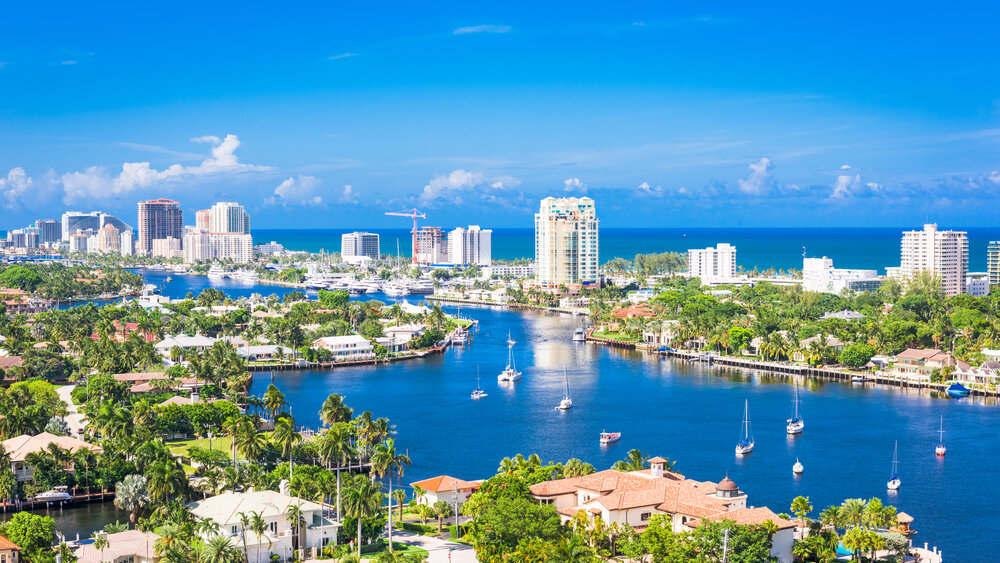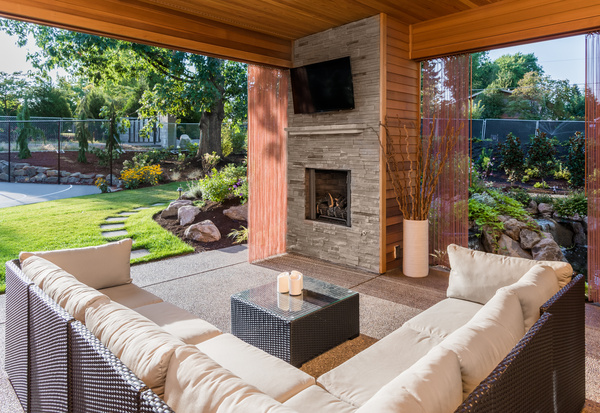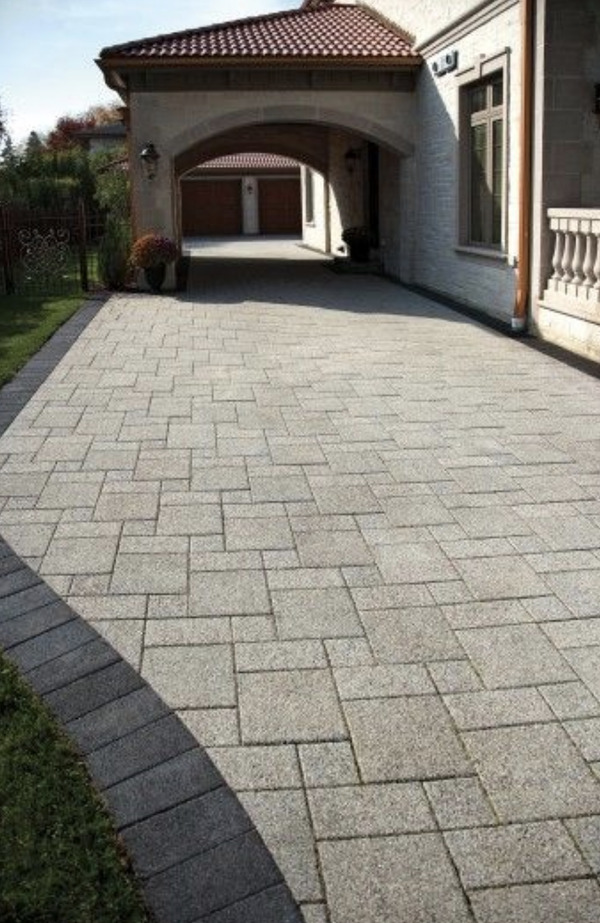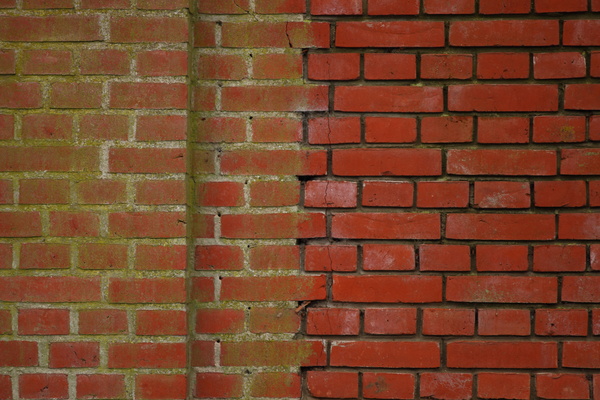
If you're in need of masonry repair, you should be aware that the process is not easy. Even though masonry is incredibly durable, it does still experience wear and tear. Cracks, loose stones, and crumbling mortar are all signs of a deteriorating masonry structure. These problems can pose a serious safety hazard. A skilled mason will know how to fix the problem sections. A trained mason will replace damaged stones with new ones, while filling cracks with concrete or sand.
Maintaining pavers takes time. Routine maintenance involves regular sweeping and occasional cleaning. Oil stains and grease can be removed using a pressure washer. The joints that are filled with sand may need to be replaced every 2 to 3 years. Polymer sand includes a polymeric ingredient that stops erosion. Sealing concrete paver edges is essential to protect them from staining and lock in the sand. A masonry contractor that is skilled in stone work should be capable of providing references of past work. You can contact them to ask for references of previous work. Ask them about the project's cost and if they have ever done similar projects. It's also wise to inquire about their labour and materials costs. Referring customers is a sign of a trustworthy company.
Before you hire a masonry contractor make sure that you verify their license. They must be licensed by the Department of Consumer Affairs of your area and have workers' comp insurance and general liability insurance. It is also important to verify whether any certifications or licensing are held by the contractor. This will avoid costly errors that might make the job less appealing. California's Contractors State License Board governs all contractors. Masonry contractors can apply for a C29 license from the board. Masonry contractors will need to be familiar with blueprints and how to identify concrete block, exterior elevations, or site works. They should also have knowledge of lien releases, land use permits, and other requirements.
If you're thinking about installing fireplace or masonry projects in Fort Lauderdale, contact our brick masons! They can help you choose the right type of masonry for your project, and will ensure that your project is done to the highest standard.
Any type of stone work can be built or repaired by a reputable masonry contractor. These masonry experts can manage any type of project, including a fireplace or outdoor kitchen. After getting an estimate from a contractor ask for a written contract. The contract should contain details like the start date and the schedule. Stone Solutions, a masonry business based in Fort Lauderdale (Alberta), has over 20 years' experience. They do everything from repairs to new stonework.
Brickwork is masonry produced by a bricklayer, using bricks and mortar. Typically, rows of bricks called courses[1][2] are laid on top of one another to build up a structure such as a brick wall.
Bricks may be differentiated from blocks by size. For example, in the UK a brick is defined as a unit having dimensions less than 337.5 mm × 225 mm × 112.5 mm (13.3 in × 8.9 in × 4.4 in) and a block is defined as a unit having one or more dimensions greater than the largest possible brick.[3]
Brick is a popular medium for constructing buildings, and examples of brickwork are found through history as far back as the Bronze Age. The fired-brick faces of the ziggurat of ancient Dur-Kurigalzu in Iraq date from around 1400 BC, and the brick buildings of ancient Mohenjo-daro in present day Pakistan were built around 2600 BC. Much older examples of brickwork made with dried (but not fired) bricks may be found in such ancient locations as Jericho in Palestine, Çatal Höyük in Anatolia, and Mehrgarh in Pakistan. These structures have survived from the Stone Age to the present day.
Brick size may be slightly different due to shrinkage or distortion due to firing, etc.
An example of a co-ordinating metric commonly used for bricks in the UK is as follows:[4][5][6]
In this case the co-ordinating metric works because the length of a single brick (215 mm) is equal to the total of the width of a brick (102.5 mm) plus a perpend (10 mm) plus the width of a second brick (102.5 mm).
There are many other brick sizes worldwide, and many of them use this same co-ordinating principle.
As the most common bricks are rectangular prisms, six surfaces are named as follows:
Mortar placed between bricks is also given separate names with respect to their position. Mortar placed horizontally below or top of a brick is called a bed, and mortar Placed vertically between bricks is called a perpend.
A brick made with just rectilinear dimensions is called a solid brick. Bricks might have a depression on both beds or on a single bed. The depression is called a frog, and the bricks are known as frogged bricks. Frogs can be deep or shallow but should never exceed 20% of the total volume of the brick. Cellular bricks have depressions exceeding 20% of the volume of the brick. Perforated bricks have holes through the brick from bed to bed, cutting it all the way. Most of the building standards and good construction practices recommend the volume of holes should not exceed 20% of the total volume of the brick.[7]
Fort Lauderdale (/ˈlɔːdərdeɪl/ LAW-dər-dayl) is a coastal city located in the U.S. state of Florida, 30 miles (48 km) north of Miami along the Atlantic Ocean. It is the county seat of and largest city in Broward County with a population of 182,760 at the 2020 census,[7] making it the tenth largest city in Florida. After Miami and Hialeah, Fort Lauderdale is the third largest city in the Miami metropolitan area, which had a population of 6,166,488 in 2019.[11]
Built in 1838 and first incorporated in 1911, Fort Lauderdale is named after a series of forts built by the United States during the Second Seminole War.[12] The forts took their name from Major William Lauderdale (1782–1838), younger brother of Lieutenant Colonel James Lauderdale. Development of the city did not begin until 50 years after the forts were abandoned at the end of the conflict. Three forts named "Fort Lauderdale" were constructed including the first at the fork of the New River, the second at Tarpon Bend on the New River between the present-day Colee Hammock and Rio Vista neighborhoods, and the third near the site of the Bahia Mar Marina.[13]
Known as the "Venice of America", Fort Lauderdale has 165 miles of inland waterways across the city.[14] In addition to tourism, Fort Lauderdale has a diversified economy including marine, manufacturing, finance, insurance, real estate, high technology, avionics/aerospace, film, and television production. The city is a popular tourist destination with an average year-round temperature of 75.5 °F (24.2 °C) and 3,000 hours of sunshine per year. Greater Fort Lauderdale, encompassing all of Broward County, hosted more than 13 million overnight visitors in 2018.[15] Each year nearly 4 million cruise passengers pass through its Port Everglades, making it the third largest cruise port in the world.[16] With over 50,000 registered yachts and 100 marinas, Fort Lauderdale is also known as the yachting capital of the world."[17]
Main articles: History of Fort Lauderdale, Florida and Timeline of Fort Lauderdale, Florida
The area in which the city of Fort Lauderdale would later be founded was inhabited for more than two thousand years by the Tequesta Indians.[18] Contact with Spanish explorers in the 16th century proved disastrous for the Tequesta, as the Europeans unwittingly brought with them diseases, such as smallpox, to which the native populations possessed no resistance. For the Tequesta, disease, coupled with continuing conflict with their Calusa neighbors, contributed greatly to their decline over the next two centuries.[19] By 1763, there were only a few Tequesta left in Florida, and most of them were evacuated to Cuba when the Spanish ceded Florida to the British in 1763, under the terms of the Treaty of Paris (1763), which ended the Seven Years' War.[18] Although control of the area changed between Spain, the United Kingdom, the United States, and the Confederate States of America, it remained largely undeveloped until the 20th century.[citation needed]
Masonry contractor
Brick work
Paver installation
Masonry repairs
Masonry restoration
Bricklaying
Stone masonry
Concrete pavers
Brick mason
Masonry construction
Bricklaying services
Paver repairs
Masonry renovation
Brick veneer
Masonry craftsmanship
Paver contractor
Masonry company
Brick wall construction
Masonry maintenance
Paver installation company
Masonry restoration services
Brickwork contractor
Stone veneer installation
Paver maintenance
Masonry wall repairs
Brick patio installation
Masonry foundation repairs
Paver renovation
Brick and stone repair
Paver sealing
Masonry retaining walls
Paver walkways
Masonry waterproofing
Brick fireplace construction
Paver driveway installation
Masonry facade repair
Brick archways
Paver patio design
Masonry tuckpointing
Paver pool deck installation
Masonry crack repairs
Brick facade restoration
Paver edging
Masonry column installation
Paver pathway construction
Masonry stone repairs
Brick wall repointing
Paver hardscaping
Masonry arch construction
Brick patio restoration
Paver sealing services
Masonry lintel replacement
Brick porch construction
Paver driveway repairs
Masonry facade renovation
Brick mailbox installation
Paver walkway designs
Masonry parapet repairs
Brick retaining wall
Paver pool area construction
Masonry step repairs
Brick wall reinforcement
Paver fire pit installation
Masonry corner repairs
Brick foundation restoration
Paver pathway designs
Masonry joint repairs
Brick patio repairs
Paver driveway designs
Masonry coping replacement
Brick arch construction
Paver patio repairs
Masonry facade rebuilding
Brick wall renovation
Paver outdoor living spaces
Masonry balcony repairs
A professional masonry contractor has the option of choosing between natural stone or manufactured stone. Natural stone will have some imperfections from Mother Nature. However, it's easier to make a masonry project with manufactured stone than natural. Natural stone is used often on stone planters, patios, and fireplaces. It is also a good choice for interior accents. An experienced masonry contractor can help you choose the right type of stone to use for your project, depending on its manufacturing process.
To prevent your chimney leaking, a masonry contractor can repair or build a crown. Crowns cover the top of a masonry chimney. They are typically 3 inches thick at their thickest point. A crown should be slightly angled so that it extends over the chimney's base. The crown is made of quality cement and is resistant to the elements. The average cost of repairing a crown is $60-$3,000 depending on its condition. It is more complicated than simple crown repairs and it is important to consider the material used in order to determine the cost. Below is a table listing the most popular materials and their respective repair costs. You can consult an expert to get a better idea of the price you should expect to pay.
A masonry contractor must be licensed to provide construction services in their area. This license ensures that the contractor has the knowledge and experience to complete a project correctly and to follow the rules and regulations of the state licensing board. Hiring a licensed masonry contractor is a good idea because they will know the ins and outs of the craft. Once a licensed masonry contractor completes the project, he will be able to answer any questions that may arise during the process.
Tie ties can help to avoid this problem. These are steel strips made of corrugated steel and are bolted to the mortar joint through the foundation of the building's structure wall. Although these ties are invisible when the wall is completed, they can be easily identified in cracks or movement of brick veneer. Not only are they dangerous but also can cause damage to the foundation of your wall. You can replace the ties with a Simpson Heli-Tie if they have become loose.
One of the most important things about your brick veneer wall may be that the mortar used in attaching the bricks can cause major damage. Although the bricks themselves can be replaced easily, mortar can cause damage to your home. The mortar manufacturers can match your walls with mortar. It is possible to match your old shade with mortar if it is done correctly. This can be avoided with ties. These are made from corrugated metal strips and are bolted into mortar joints through the bottom of the structure. These ties cannot easily be seen once the wall's finished. However, they can be identified if there is movement or crack in the brick veneer. Aside from being dangerous, missing ties could cause shifting or even failure of the foundation. For those ties that are not working, you can replace them with a Simpson Heli-Tie.

Whether your home is old or brand-new, a masonry contractor can make the necessary repairs. Masonry contractors typically use brick or stone for walls. They cannot, however, perform repairs on foundations, which require specialized materials and engineering. When it comes to foundation repairs, it is crucial to seek the assistance of a professional. A masonry contractor can help you navigate these tricky issues.
A properly installed chimney is a very durable investment. While cracks and crumbling mortar joints look unsightly, it can cause water to seep into the chimney, causing major damage. Similarly, loose stones and bricks can damage your house. The repair of these damages should be performed by a qualified technician. If the repairs are minor, a Masonry Contractor can use a different type of cement to ensure that the chimney doesn't leak. While hiring an expert masonry contractor may cost a bit more money, it's well worth it. Not only will a professional finish the project faster, but a Masonry Contractor will ensure your chimney is beautiful. The service is guaranteed and will come with a full workmanship warranty. A Masonry Contractor can build or repair chimney.
It is important to get an estimate for the cost of your project from a masonry contractor. Some companies require a minimum fee in order to conduct assessments. Make sure you ask the company if this is applicable to your project. Many masons will provide estimates for free and won't charge any additional fees. They can charge for their travel time, materials and other expenses without having to pay extra money for small jobs.
Brick veneer walls are constructed before sheathing. Insulated brick walls can be found in many cases. For attaching brick veneers to walls, metal ties must be nailed to the studs. Once bent, they can be bent to horizontal positions. The mortar joints will then be encapsulated with the ties. Brick veneer walls are typically built along the foundation wall's edge with approximately one inch between each brick.
The first step in masonry repair is tuckpointing. This process involves loosening crumbling mortar with an angled grinder or a hammer drill. A pavement specialist then prepares new mortar and pushes it into the joints with a trowel. A jointer is then used to create rounded lines on the mortar. The finished product is then wiped clean with a brush. Older buildings may not have expansion joints, so bricks may have deteriorated. Bricks will eventually expand and contract, requiring a full replacement. While calk and sealants can repair minor cracks, they won't fix major problems and may even need a new building from a masonry contractor. Old buildings, which lack expansion joints, can develop large cracks that shear off large pieces of masonry.
Water leakage through a chimney could cause severe damage, such as cracks or rotten mortar. A poorly installed chimney can lead to major losses. Such problems can be prevented from occurring by getting a qualified masonry contractor to repair or build your chimney. A competent contractor will determine the extent of damage to your chimney and give you solutions. The end result is that your home will be safer if you have a professional.
Before you decide on a type of outdoor kitchen, you must consider your budget. Outdoor kitchens can be expensive, and if you try to build it on your own, you may run out of cash before the project is finished. It is therefore important to find a budget that works for you, as well as your lifestyle. Know your "why," and choose a contractor accordingly. Then, you can begin planning and choosing materials. Click Here to know more About Masonry
If you're looking for a professional who will build or repair your masonry, this article will give you some information on what you can expect. These specialists can handle everything from crown repair to fire pit repairs. This way, you can enjoy the benefits of masonry while improving your home. After all, masonry is a very durable and long-lasting construction material. You can trust the work of professionals to deliver an excellent finished product.
The process of masonry repairs can be difficult. Despite being extremely durable, masonry still experiences wear and tear. Cracks and loose stones are indicators of a crumbling masonry structure. These problems can present a serious safety hazard. A skilled mason can fix these sections. A skilled mason will replace broken stones with new ones. He or she can also fill cracks using concrete or sand. A vital part of home safety is to check your chimney for damage. If you don't have proper ventilation, creosote builds up in your chimney over time. This can lead to a fire hazard. Make an appointment if your chimney has not been inspected in a while. The inspection will reveal any problems and help to minimize the damage to your chimney.

A brick crown repair costs anywhere from $350 to $3,000, depending on the amount of damage. Some of the cheaper repairs involve filling a crack or replacing a piece. Other work may require full replacement if it's severely damaged or missing pieces. Crown repair costs are also likely to be lower if you're only replacing a single brick. Crown repair costs are generally based on the material used, the type of construction, the initial cost, and the amount of work required.
Your first step when laying your pavers is to choose the right pattern. Most pavers will work well with a 45deg, 90deg, or 45deg herringbone layout. Herringbone patterns are strong enough to withstand heavy stomping as well as the maximum load. You should keep the area around your new pavers clean, as debris can scratch the surface. Jointing sand should only be used correctly to avoid any problems with settling or bridging.
While hiring an expert masonry contractor may cost a bit more money, it's well worth it. Not only will a professional finish the project faster, but a Masonry Contractor will ensure your chimney is beautiful. The service is guaranteed and will come with a full workmanship warranty. A Masonry Contractor can build or repair chimney. The process of masonry repair consists of repairing cracks, gaps, and other deterioration. Masonry is durable, but over time, it experiences wear and tear. Therefore, it is crucial to hire a professional masonry repair company to handle the job. The contractor will perform repairs to address signs of aging and other problems such as gaps and old bricks that have lost their strength.
There are many reasons why you may need to repair a crown, but not all can be fixed by a general Contractor. A masonry contractor is the best person to handle this job because they have extensive knowledge and experience in the field. Although crown repair services can be relatively inexpensive, it is worth knowing the cost before you hire a contractor. The average cost of crown repair services is $60 to $3,000; the extent of the damage will also play a significant role in the final price.
Fort Lauderdale Masonry is a masonry contractor that takes pride in offering quality and dependable service. We have years of experience working on a wide variety of masonry projects, so we know exactly what needs to be done to get the job done right. We also offer a range of services such as chimney repair, fire place repair, pool deck and chimney construction. Contact us today for all your masonry needs - you won't be disappointed!
A masonry contractor can repair or build a variety of projects. You can draw out the look you desire or take photos of your ideas to inspire you. While a square-cornered fireplace is easy to construct, curved chimneys are more difficult and require more materials. Chicago's masonry chimneys are also something that the masonry contractor should be familiar with. Click Here to know about Masonry
This article will tell you what to expect from a professional that will repair or build your masonry. These specialists can repair everything, including crown repairs and fire pit repairs. So you can both enjoy the benefits and improve your home with masonry. Masonry is a strong and durable material. Professionals are qualified to produce a top-quality product. The first step to repair masonry is tuckpointing. This involves the removal of crumbling mortar by using an angled grinder, or a drilling machine. The pavement specialist will then prepare new mortar and push it into the joints using a trowel. To make the mortar look rounded, a jointer can be used. After the mortar has dried, it is cleaned up with a brush.
A masonry contractor can build or repair a crown to prevent your chimney from leaking. Crowns are designed to cover the top surface of the masonry chimney and are usually built with 3 inches of thickness at the thickest point. The height of a crown must be angled slightly so that it extends above the chimney's masonry base. A quality cement is used to construct the crown, which is designed to withstand the elements. The average cost to repair a crown varies from about $60 to $3,000, depending on the type of material and the damage. The work is often more complex than simple crown repairs, and the type of material is also an important consideration in determining cost. The table below lists the most common materials and their repair prices. For a general idea of what you can expect to pay, you can consult an expert.
When choosing pavement stones, be sure to consider the size and color you want them to be. Fort Lauderdale Masonry also builds brand new driveways for houses. So if you're looking for a masonry contractor that can provide you with all sorts of masonry projects, look no further than Fort Lauderdale Masonry.
A masonry contractor is able to build or repair many different projects. It is possible to draw a plan of what you would like, or take photos to get inspiration. A square-cornered chimney can be constructed in a few hours. Curved chimneys, however, require more complicated materials and are more expensive. Chicago masonry chimneys will also be familiarized with the contractor. A masonry contractor is qualified to repair or build a house. However, hiring them is not always necessary. Many homeowners attempt to repair masonry by themselves. However, many projects end up in limbo for reasons that aren't immediately obvious. These problems can cause a need for complete replacement. A masonry contractor can help you to keep your home safe. These are common mistakes homeowners make.

Before you hire an outdoor kitchen contractor, it's essential to do a bit of vetting. This will give you an idea of what to expect. For example, you can ask the contractor about their customer service and timelines. Most homeowners underestimate the length of their project. It may take weeks or even months to complete. By knowing how long it will take before the builder can start, you can plan accordingly. If you're planning to have a permanent outdoor kitchen, you should choose a contractor that specializes in this type of project. Whether you'd like a pizza oven or a BBQ island, panel Masons can build a kitchen that suits your taste. You can also get a customized concrete countertop from a local supplier. Whether you'd prefer a pre-built or an assembled outdoor kitchen, you should work with a company that is committed to providing quality service and innovation.
Repairing masonry can include filling cracks, or replacing cracked slabs of stone. Sometimes this involves removing affected slabs of stone and replacing them with newer ones. Concrete filling, caulking, and sand filling may be necessary for other issues. A masonry contractor will advise you on the best way to solve your situation. After the repairs are completed, your building will look fantastic again. The cost of repairing a brick crown can range from $350 to $3,000 depending on how severe the damage is. You can fill a crack or replace a piece, which are some of the cheapest repairs. Some work will require complete replacement if the piece is badly damaged or missing. Crown repair costs can be reduced if only one brick is being replaced. Crown repair costs are usually based on the material used and the type of construction. They also depend on the amount of work required.
The biggest risk of hiring a general contractor for an outdoor kitchen is safety. A general contractor may not be aware of hazards such as combustible materials, ventilation issues, and many other factors. In addition, you're not sure that the outdoor kitchen will last for as long as you expect it to. And if problems occur, you'll need to fix them as soon as possible. Whether you're looking for a new patio, walkway, or pool deck, a masonry contractor can help you get it done. Not only can they build and repair pavers, but they can also help you decide on the best materials and colors for your space. Pavers can come in a variety of colors and shapes, so a masonry contractor can help you choose the best one for your space.
A masonry contractor is able to build or repair chimneys with the proper tiling. They are also trained to make long-lasting repairs. These contractors are familiar with the different kinds of masonry, and they are able to provide a finished product that shields your chimney from the elements better than the "Do It Yourself" type. Moreover, masonry contractors are skilled in cleaning the flues and liner, as well as protecting the exterior of your chimney.
